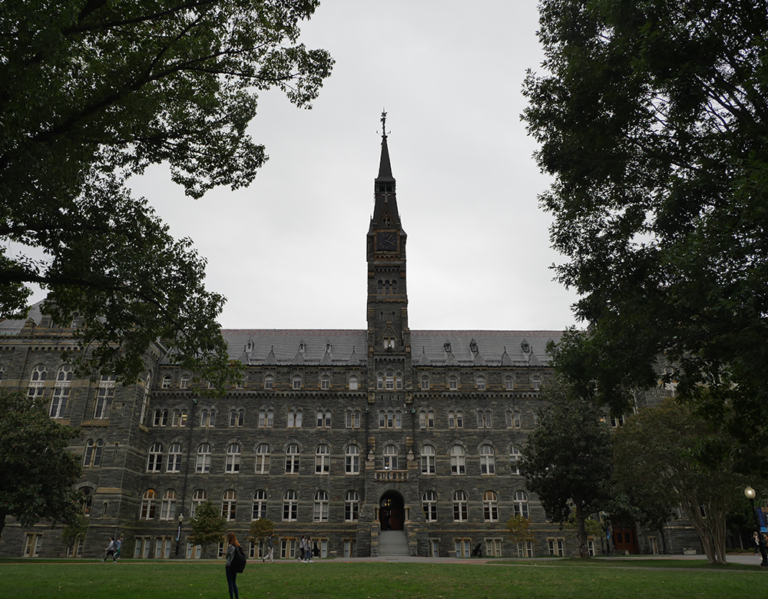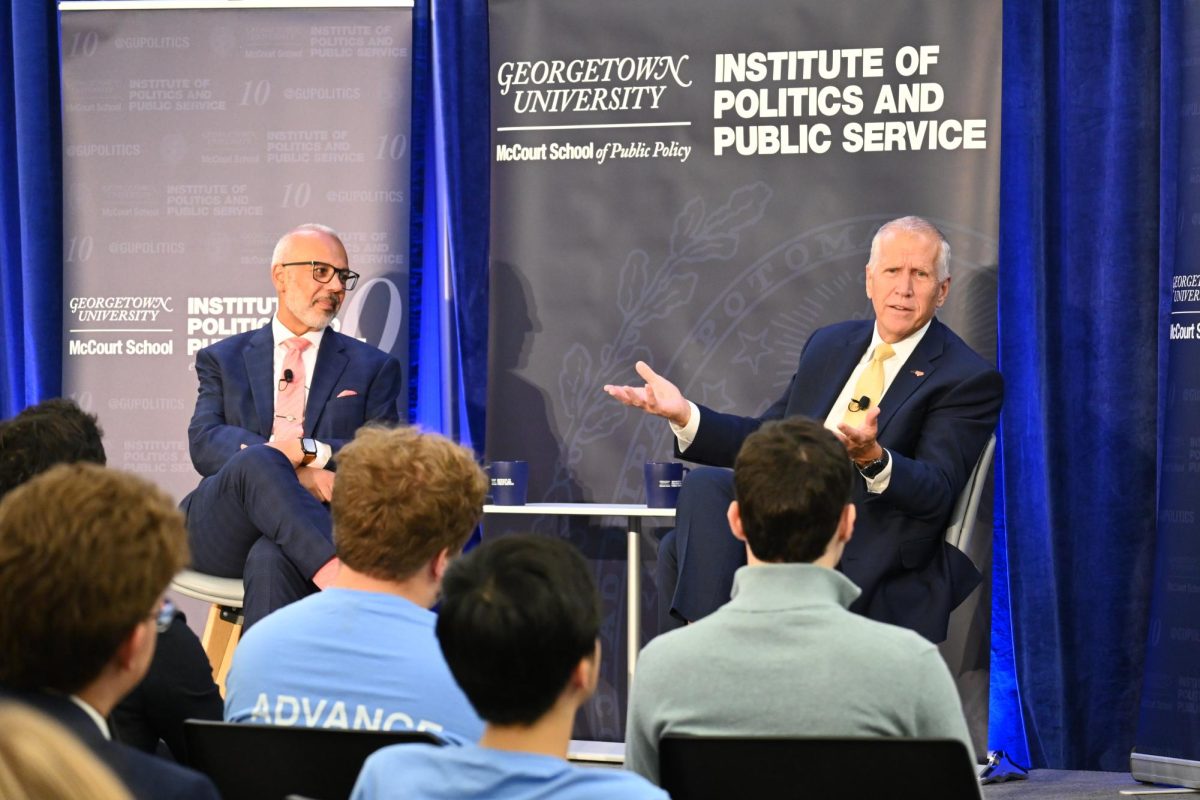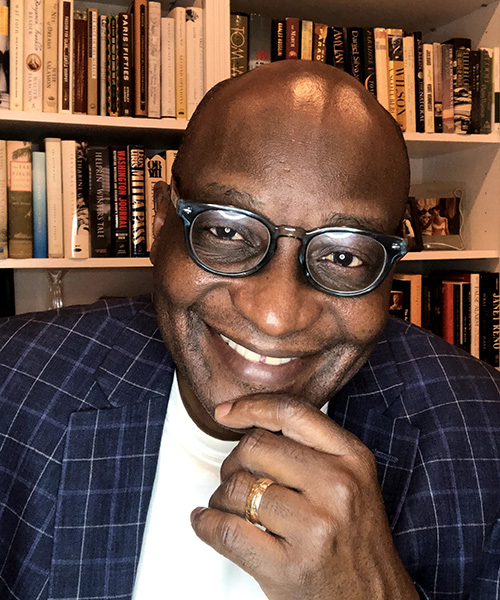Experts on international security and U.S.-China relations analyzed the global opioid crisis and China’s role in the fentanyl trade in a Nov. 7 webinar.
The discussion, hosted by Georgetown University’s Initiative for U.S.-China Dialogue on Global Issues, which facilitates dialogue for academics and students interested in U.S.-China relations, was the seventh in the institute’s China and Global Governance series, which began in September 2023 to target China’s rising power in international institutions. The discussion was moderated by Dennis Wilder (GRD ’79), a senior fellow for the initiative.
Fentanyl, a synthetic opioid, is often mixed with other drugs and is extremely lethal. Around two milligrams can kill an average individual. The United States reported 74,702 fentanyl deaths in 2023.
During the event, David Luckey, an international and defense researcher at RAND, a global think tank, and professor at its graduate school, said many online fentanyl markets can be directly traced to Chinese sources.
“The production, distribution and use of illegally manufactured fentanyl should be thought of as an ecosystem, and the People’s Republic of China is at the beginning of the global fentanyl supply chain,” Luckey said at the event.
While the international community continues to call on Beijing to stop the spread of fentanyl, criminal groups in China smuggle precursors to the drug and forms of fentanyl across the world. Fentanyl is illegal in China beyond medical uses.
Vanda Felbab-Brown, a senior fellow at the Center for Security, Strategy, and Technology Center at the Brookings Institution, a defense policy center, said at the event that China often selectively enforces laws around fentanyl to further its strategic objectives.
“China uses law enforcement cooperation as an extension of its just strategic objective, but it also subordinates it with geostrategic objectives,” Felbab-Brown said at the event. “With countries with whom it has good relations, whom it wants to court, it extends law enforcement cooperation and uses it to achieve political and diplomatic objectives.”
Virginia Comolli, who oversees the Pacific program of the Global Initiative Against Transnational Organized Crime, a nongovernmental agency that brings experts together to address international crime, said the Chinese government often neglects to prosecute overseas crime by Chinese nationals, including Chinese criminal gangs’ role in the drug trade.
“We’ve seen basically both approaches, one of allowing these actors and these activities to continue, and one of actually just to remove these actors from the ground and to take them back to China,” Comolli said at the event. “And basically we don’t know what’s happening to them, whether any investigations take place.”
Luckey said both China and the United States are lacking in their approaches to the global fentanyl trade, despite China’s 2019 decision to schedule fentanyl as a controlled, illegal drug.
“This major effort that China took in 2019 was significant,” Luckey said. “That was a significant effort. In fact, it was a greater effort than we’ve done in the United States. We haven’t scheduled all fentanyl and federal analogues in the United States.”
Felbab-Brown said the United States and China have failed to cooperate to prevent fentanyl.
“Since the beginning of 2024, we have seen significant levels of activity and law enforcement cooperation,” Felbab-Brown said. “China has taken many steps desired by the United States, but we are still, nonetheless, far from where we would like the cooperation to be.”
Felbab-Brown said President-elect Donald Trump’s incoming administration may take a new approach to U.S.-China relations, including a tariff hike on imports from China, which has the potential to disintegrate cooperation.
“If the Trump administration goes ahead with imposing something like 60% tariffs, which would be crippling for the Chinese economy, we will see the evaporation of cooperation or at least conversations,” Felbab-Brown said. “In a wide range of domains, we’re going to go back down to zero until there is some sort of renegotiation of the trade relationship.”
Given the uncertain state of U.S.-China relations, Luckey said the United States must also work alone to stop the fentanyl trade.
“The United States must not only continue to collaborate bilaterally with China in areas related to the production and distribution of synthetic opioids, but I also want to stress that the United States must act unilaterally to do everything it can to directly stem the flow,” Luckey said. “There are no simple solutions, if any solutions, to this wicked problem, because it is so multifaceted and touches on so many aspects of our society.”


















